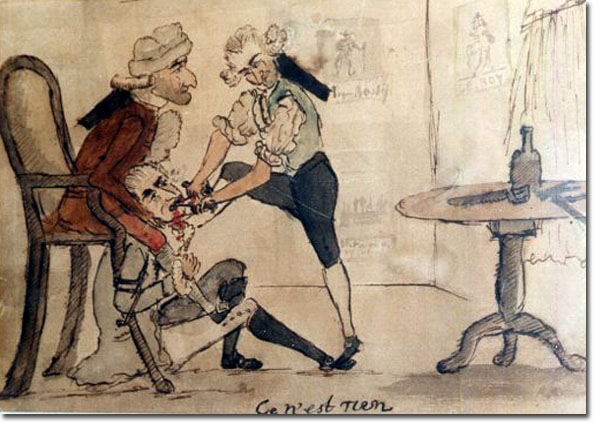A noteworthy case,
which was reported in the newspapers, gives some indication of the life that
Joseph led. He advertised that he would be in Leeds
for his dental practice in the spring of 1829,(5) there lodging with Mr William
Judson at

A regency dentist shows his skills!
As a result of this consultation, Joseph asked John Stockdale, the local druggist’s apprentice who had previously made medicines for him, to formulate an electuary (a medicine for oral administration) for Mr Birch. This was made from 2 ounces of honey, 2 ounces of spirit of turpentine and some powdered gum, with a little liquorice powder spread over the top. The apprentice also made an emetic (a medicine to induce vomiting) from sulphate of zinc. We can’t be certain what Mr Birch asked Joseph about, but Mr Birch had complained to his wife that there were frogs in his stomach which he wanted to kill! Mr Birch took the emetic without any ill effects, but when he took the electuary, he quickly showed symptoms of poisoning and died on Sunday 12th April.
At the subsequent inquest Joseph was referred to as Monsieur Cafferata, a French Doctor. The coroner had the electuary analysed independently and it was found to be harmless, and he was at pains to point out that there was no suspicion attached to Joseph, although the coroner also stated that “He was decidedly against the employment of quacks, believing they did much more injury than they effected good.” This comment certainly seems a slur on Joseph’s profession! A packet of arsenic which the ill-fated Mr Birch had somehow managed to acquire was found in the deceased man’s pocket, and the coroner’s conclusion was that he had probably taken it “with a view to destroying the reptiles which he imagined he had within him”.(6)